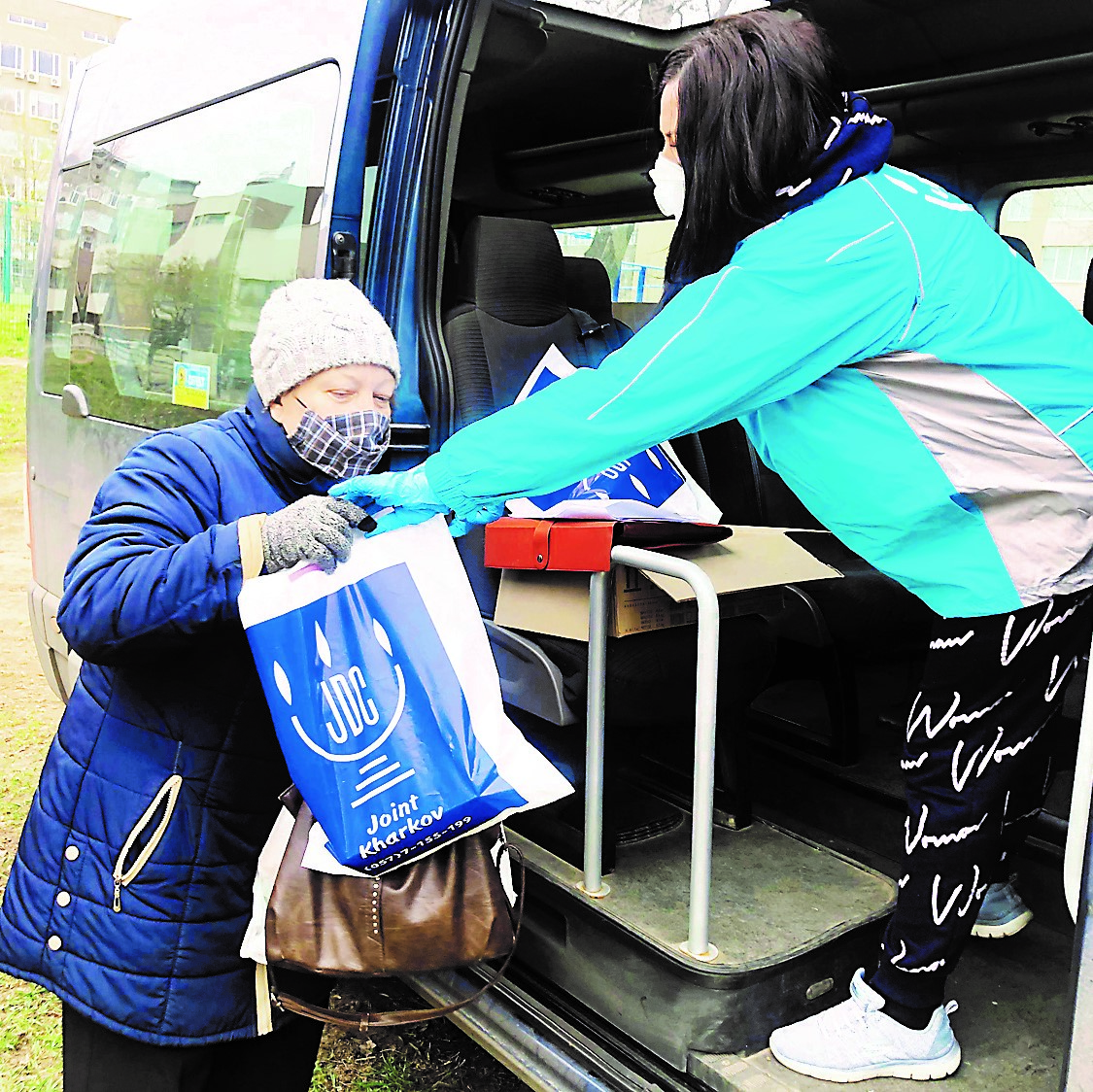
World

Jewish elderly isolated as community centres close
CNAAN LIPHSHIZ
She’s a widow whose only daughter died in 1999. Unable to visit the local Jewish community centre that has been her social lifeline, Boronina now eagerly awaits the weekly visit by her caseworker from the JDC, the humanitarian group formerly known as the American Jewish Joint Distribution Committee.
“The worst loss this virus and quarantine has brought for me is isolation,” Boronina said of the COVID-19 pandemic. “Communication is more important for me than material assistance.”
The former Soviet Union has about half a million Jews, most of them living in Russia and Ukraine. Many thousands of them are elderly.
The JDC, a 106-year-old Jewish international aid agency, was born in 1914 to assist exactly those types of Jews who found themselves mired in difficult circumstances at the start of World War I. It helped Jews flee Nazi Germany beginning in 1933. About 80 000 German Jews escaped Europe altogether with the help of the JDC.
Later, when the Soviet Union collapsed in the early 1990s, the JDC was the only reliable source of aid for many who were plunged into extreme poverty.
So the agency has plenty of experience in providing food and medicine in war zones, earthquakes, and the like. The trickier part, JDC officials said, has been relieving the loneliness and isolation that the crisis has meant for the elderly Jews in that part of the world.
Before COVID-19, the JDC had offered them things such as yoga, gymnastics, pottery, language, and painting classes, and the benefit of socialising through a network of dozens of Jewish community centres and day centres.
“They’re confined to four walls, some in dilapidated homes. For some, the will to live is slipping away,” said Michal Frank, the executive director of JDC in the former Soviet Union.
“Before the virus, they could either go to the Jewish community centre or, if they were home bound, receive home visits from the JDC caseworker. For some, the virus has either complicated that or made it impossible. We’ll be dealing with the effect this is having on their mental condition for a long time after this is over.”
In response, the organisation has set up COVID-19 hotlines manned by trained volunteers, one of the only programmes of its kind for the region’s elderly Jewish population.
There are six call centres, including ones in the Ukrainians cities of Odessa and Dnipro, as well as in Chisinau, the capital city of Moldova. Working off a list of elderly clients who get regular aid from JDC, volunteers and staff chat for about half an hour with each person they call, and make sure they have what they need.
Across the former Soviet Union, additional Jewish communities and groups have also launched emergency services to help vulnerable populations through the coronavirus. Organisations affiliated with the Chabad-Lubavitch movement, which constitutes a major force for post-Soviet Jewry, have been churning out thousands of meals and providing protective gear to at-risk elderly Jews for weeks in Ukraine, Russia, and Belarus.
One Chabad project for young volunteers, EnerJew, also attempts to address the isolation issue. Its members have been assigned elderly community members to check up on regularly by phone and sometimes on their doorsteps.
Russia and Ukraine have recorded about 10 667 deaths and 1 306 deaths respectively from COVID-19, placing them low on the table of world fatalities per million inhabitants. Those two countries have about 500 000 Jews, but few have died from the virus.
Many of the JDC’s community centres still feature activities, conducted under social distancing limitations, that are broadcast live on the internet. However, it’s not clear at this point how many people over 70 and 80 are able to enjoy these broadcasts. In Ukraine, a JDC initiative called the Leadership Alumni Programs is also planning to hand out tablet computers to dozens of elderly clients.
The workarounds generally help, according to Svetlana Ignatyeva, a 74-year-old from Odessa. But they’re no substitute for being a part of the “bigger family” she found at her local day centre.
“How can just a taste be enough when you are used to a big meal?” she asked.




